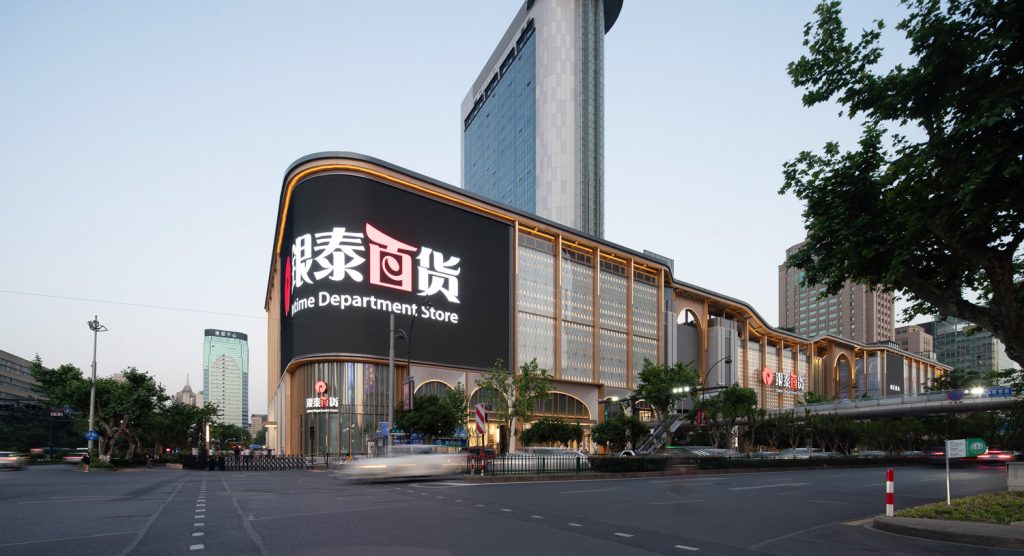In a significant move that reflects its evolving business strategy, Alibaba Group has announced the sale of its China-based department store chain, Intime, for a substantial loss of $1.3 billion. The sale is part of a broader effort by the e-commerce giant to refocus its resources and reduce its involvement in the traditional retail sector, as it shifts its attention toward strengthening its digital ecosystem and e-commerce platforms.
Why Alibaba Is Selling Intime
The decision to part ways with Intime comes as part of Alibaba’s ongoing efforts to streamline its operations and restructure its business model. Intime, once a prominent chain of department stores in China, has faced increasing challenges amid the rise of online shopping, changing consumer preferences, and shifting retail trends. As consumers increasingly move toward e-commerce, traditional retail models like department stores have struggled to keep up.
While Intime was initially seen as a valuable asset for Alibaba’s push into offline retail, the rapid growth of online shopping, particularly on Alibaba’s own e-commerce platforms, made it clear that the company needed to focus on its digital core. This shift is reflective of broader trends in the retail industry, where physical stores have been closing at an accelerated pace as more consumers opt for online shopping experiences.
The Details of the Sale
Alibaba has agreed to sell Intime to Suning.com, one of China’s largest retailers, for a deal that will incur a $1.3 billion loss. This sale marks a significant retreat from the physical retail space for Alibaba, which had invested heavily in Intime over the years in an attempt to bridge the gap between online and offline retail. Despite the substantial financial loss, the move allows Alibaba to refocus on its core strengths in the e-commerce sector and cloud computing.
The deal with Suning.com is part of a broader trend of consolidation in China’s retail sector, where traditional department store chains are struggling to stay competitive against the dominance of online giants like Alibaba and JD.com. In addition to its e-commerce platforms, Alibaba is also investing heavily in areas like cloud computing, digital entertainment, and logistics, which are expected to provide more sustainable revenue streams in the future.
The Impact on Alibaba’s Business
For Alibaba, the sale of Intime is part of a broader trend of divesting non-core assets. The company has been focusing on shedding underperforming assets and repositioning itself in line with the changing dynamics of the global economy. In recent months, Alibaba has also reduced its exposure to sectors like traditional retail and real estate to prioritize more profitable and high-growth areas such as cloud technology and digital entertainment.
Alibaba’s decision to sell Intime reflects a larger strategy to adapt to shifting market demands and maintain its competitive edge in the digital age. With the rise of online shopping, many traditional retail chains like Intime have struggled to maintain profitability, leading to a reevaluation of their place within the broader business strategy of companies like Alibaba.
What Does This Mean for the Retail Industry?
The sale of Intime also highlights the ongoing challenges faced by the retail industry in China and globally. As e-commerce continues to dominate, the traditional retail sector is under increasing pressure. Companies that fail to innovate and adapt to the changing shopping habits of consumers risk being left behind.
For Intime, the sale to Suning.com could mark a new chapter as it is integrated into one of China’s leading offline and online retail platforms. However, the move is unlikely to reverse the broader trend of declining demand for department stores in favor of online shopping options.
Alibaba’s Future Strategy
Looking ahead, Alibaba is expected to continue shifting its focus toward its more lucrative digital businesses, including cloud computing, digital media, and financial technology. The company’s core e-commerce operations will remain vital, but Alibaba will likely place even more emphasis on technological advancements and expanding its reach in the global digital economy.
Alibaba’s leadership has signaled that it is committed to reinventing itself as a technology powerhouse rather than a traditional retailer. The company’s future growth will likely be driven by its investments in artificial intelligence (AI), data analytics, and cloud infrastructure, which are expected to shape the future of commerce and enterprise solutions.
Conclusion
The decision by Alibaba to sell Intime for a $1.3 billion loss underscores the rapidly changing dynamics of the global retail industry and reflects Alibaba’s strategic pivot toward a more digitally focused future. As e-commerce continues to reshape consumer habits, companies like Alibaba are positioning themselves to thrive in the new digital-first economy. For Intime, the future remains uncertain, but the deal with Suning.com marks a significant shift in the Chinese retail landscape.
As Alibaba continues to evolve, its decision to divest traditional retail assets like Intime highlights the company’s commitment to prioritizing growth in its core sectors, which are expected to offer greater long-term potential.



Comments (0)
No comments yet. Be the first to comment!
Leave a Comment